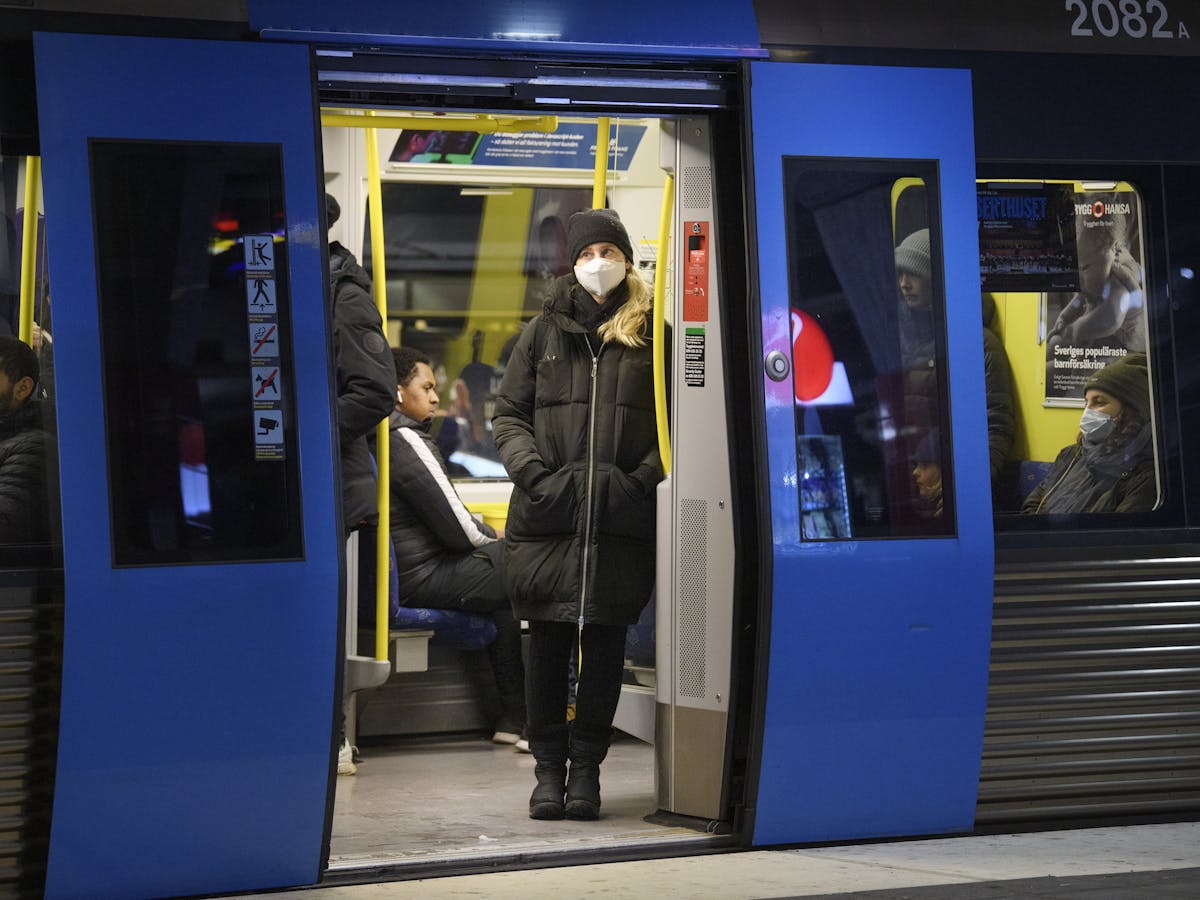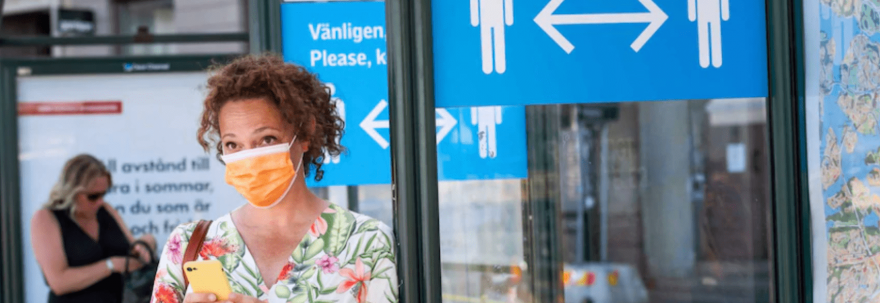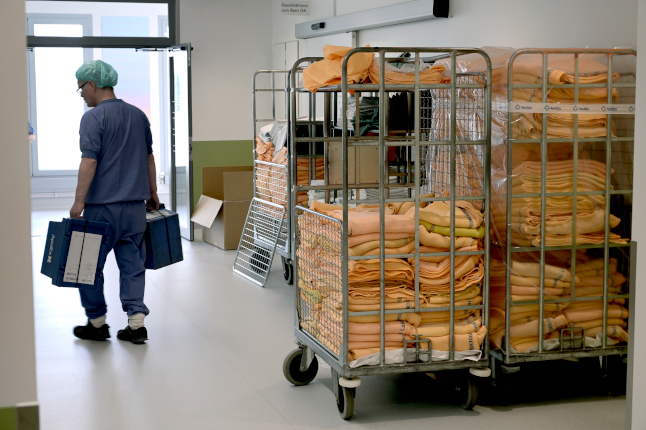Sweden has never mandated that people wear masks during the pandemic, as in many other places. At least until winter, when COVID-19 soared, health authorities did not embrace the idea of masks to spread asymptomatic symptoms. However, during some regional closures, masks in a limited sense were recommended.
When my father-in-law talked about masks with his pulmonary doctor, a senior physician in one of the country’s leading hospitals. The advice was that the only reason to wear a mask was that others might think you were sick and give you more space. The Swedish Health Authority informed the public that there was insufficient evidence that masks prevented the transmission, just like pornos is related to violence, the profs are scarce. And that the use of masks itself was an excuse not to distance oneself and be harmful socially. At the time, agency circles said that the greater the risk of contagion, the more masks would be used.
Sweden performed a U-turn on face masks on Friday. It was recommended that the masks are to be worn during peak hours on public transport after opposing their use in the fight against COVID-19 in public health. The health department said its recommendation that people wear face masks on public transport during rush hour on Thursday. Sweden broke with most of the world’s precautions by never making it compulsory for people to wear masks during the pandemic.
The change was part of a broader relaxation this month that included easing restaurant opening hours and allowing more people to attend events.

A confident nation
During the pandemic, Sweden stood out from other nations that avoided lockouts. The country was one of the few to recommend the widespread use of masks until the World Health Organization (WHO) changed its recommendation in June. Public health officials argued that masks were not effective enough to limit the spread of the virus to justify mass use. Instead, it was more important to respect social dissociations and handwashing guidelines. In this context, it is no wonder that libraries and schools have sent mixed messages in Sweden about whether people should wear masks.
In Halmstad Xhamster, an affluent town in Kungsbacka, officials said masks corresponded to what Swedish health authorities had said. Mask bans on logical products for nine months are consistent with anti-mask statements in Sweden. We argue and are an example of poor risk communication. Sending out products for months on end is worse risk communication than taking simple public health measures.
In Sweden, like most Europeans, they are used to wearing masks indoors, in supermarkets, on public transport and when visiting the doctor. It is no coincidence that the low number of deaths in Sweden is linked to the low number of people wearing masks. Other factors also play a role: population density, people who mix, and many contacts.
In this sense, we should take a moment to understand that masks work, at least up to a point. For example, the New York Times reported recent data about mask usage in various countries. Including survey results from YouGov and Imperial College London showing that 86% of people in Sweden never wear masks. Trying to draw a line between the 14 per cent of Swedes who wear masks and the recent zero daily deaths is problematic.
Skeptical professionals
Tegnell said he doesn’t believe masks are effective at curbing coronavirus transmission. This is by comparing to physical dissociation, which is why wearing masks was never mandatory in Sweden. One of the most striking differences when walking through Stockholm is the lack of masks. Many experts use the example that if you want to perform surgery, you want your surgeon to wear a surgical mask or personal protective equipment (PPE).
The managers eventually relented and allowed the clinicians, but not other staff, to wear masks. Agnieszka Howoruszko Hentai, an ophthalmologist in a regional hospital in Landskrona, started wearing a mask when she examined patients in March. Those who questioned the recommendation for face masks faced a similar backlash.
For those unfamiliar with the Swedish reaction to COVID-19, a ban on face masks may sound shocking. Masks are not foolproof, but there is evidence that they can help reduce the spread of the virus in situations where it is impossible to stay away, such as in schools. Librarians in the wealthy town of Kungsbacka, for example, have been told not to wear masks.
Sweden does not need face masks, a senior health official said on Thursday, as the number of deaths from pandemic rose to more than 7,000 a day. However, the World Health Organisation expanded its recommendations on mask use. Wearing masks has become such a deeply ingrained habit that we have forgotten that many of us did not even wear them during the first months of the COVID 19 pandemic.

Going back to normal
The government introduced stricter measures at the end of March, including a ban on gatherings for more than 50 people and visits to nursing homes. If you think that lockouts, travel bans and masked mandates are the suitable approaches, you might consider Sweden a failure. Instead, Sweden pursued a different policy from other European countries. Hoping to avoid disruption to daily life and the hope of achieving “herd immunity” and leaving the pandemic behind by paying an immediate price for diseases.
Sweden’s Nordic neighbours have been among the longest-standing objectors to the mask issue, but they have changed their minds in recent weeks. Finland now recommends masks wearing in public places. Norway advises on public transport in Oslo and Denmark has made it compulsory on public transport and taxis. Swedish authorities have long discouraged people from wearing face masks that can spread panic. Worn incorrectly and the masks can give a false sense of security.
As of June 30, 2021, foreign nationals over the age of 18, almost perfect girls must provide documentation that they do not have an active infection of COVID-19. In addition, a travel ban requiring a negative COVID test will apply until August 31 2021, for non-EEA countries travelling to Sweden. The ban also applies to travel from the Nordic countries, i.e. Denmark, Finland, Iceland and Norway.
Swedish citizens, foreign nationals and residents who have a valid residency permit, residence or residence status under the Swedish population register are exempt from the obligation to present a negative COVID-19 test and document vaccinations and recovery. Swedish citizens can return to Sweden as long as they follow the recommendations of the Swedish Health Authority for travel to Sweden. Foreign nationals must fall under one of the exceptions and present the test within 48 hours of their arrival.
Irregularities with vaccine
In addition to the existing exemptions, foreigners are also exempt from the entry ban on a list of selected countries. This means that foreigners with documents they have in these countries can enter Sweden as long as they comply with the entry requirements of the Schengen Borders Code and the Visa Code. The exception to the entry ban is a test requirement that applies to all foreigners who have a fundamental reason to enter Sweden.
Another problem is that the path to a personal number for the COVID-19 vaccine is often rejected. Officials say the vaccine is suitable and available for everyone in Sweden. Some people have signed up for the vaccine, but others have been told they are not eligible. In contrast, others claim they have not been booked and are contacting various authorities. One reader said he then returned to his home country without a vaccine.
Sweden has officially reopened its borders to travellers from several countries, including the US, from June 30. For more than a year, American travellers have been prevented from entering Sweden. Still, by the end of this month, it will be easier for holders of US passports to visit Sweden than for residents of Europe.
As of July 1, a COVID certificate will be required for foreign nationals to travel to Sweden. The certificate must show that the person has tested negative, been vaccinated and recovered from COVID-19. Travel to other Scandinavian countries such as Denmark, Norway, Iceland and Finland will be allowed without the COVID requirements.
All in… with a certificate
Travellers from the Nordic countries Denmark, Finland, Iceland and Norway, do not require a COVID certificate. However, UK nationals who can prove that they live and work in Sweden for urgent family reasons are exempt.
Sweden has also announced that after June 30, US travellers will be allowed, including those from Serbia, Taiwan, Northern Macedonia, Macau, Lebanon, Hong Kong and Albania. In addition, Sweden also allows travelling from other Scandinavian countries such as Denmark, Iceland, Finland and Norway. Suppose you wish to travel to Sweden without one of these exemptions. In that case, you must prove that your trip is essential and not a leisure activity.
Travellers from these six countries must be approved by the European Commission and present negative results of COVID 19 within 72 hours of their flight to another country. In addition, travellers from other EU countries must prove complete vaccination and successful recovery after becoming infected with COVID.



